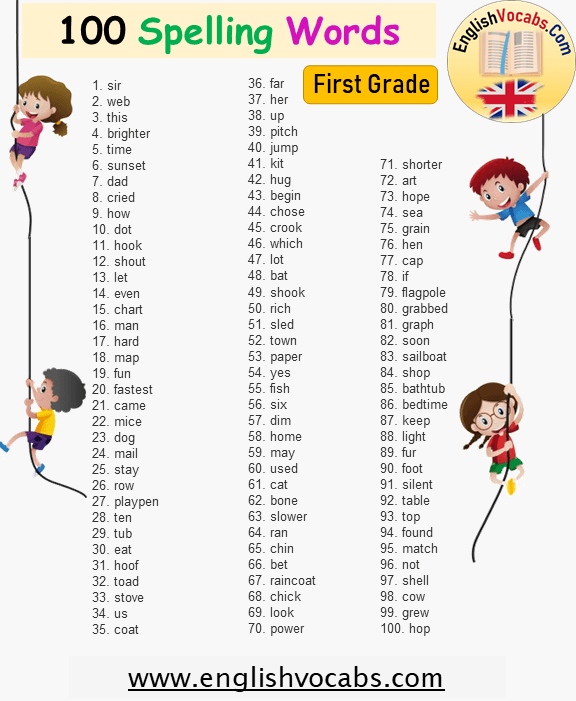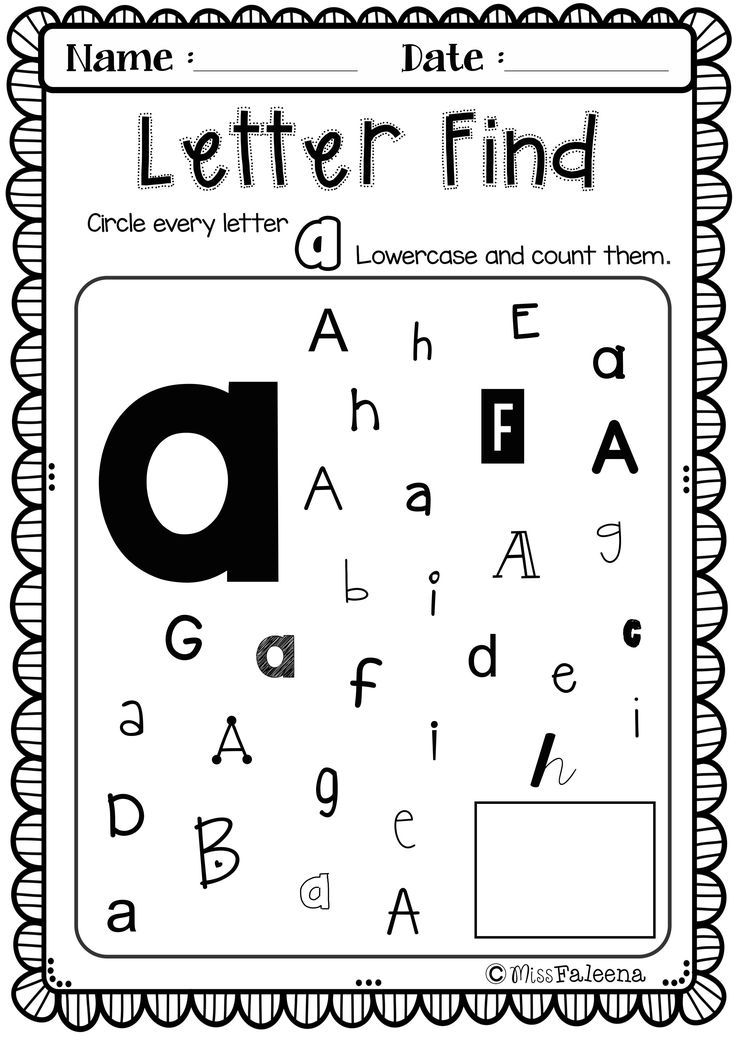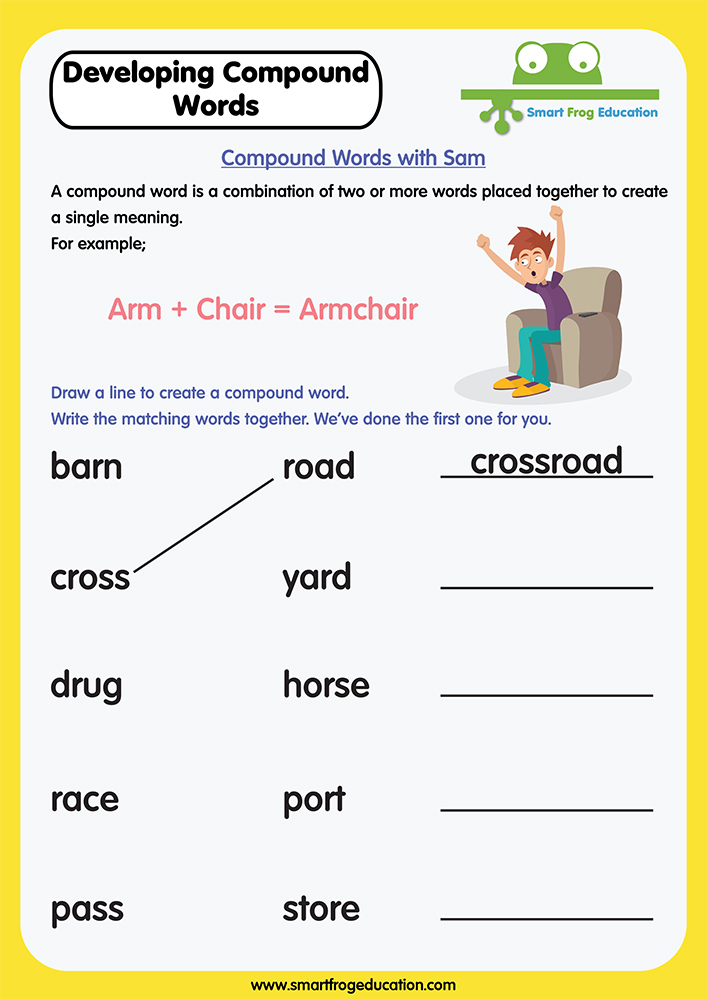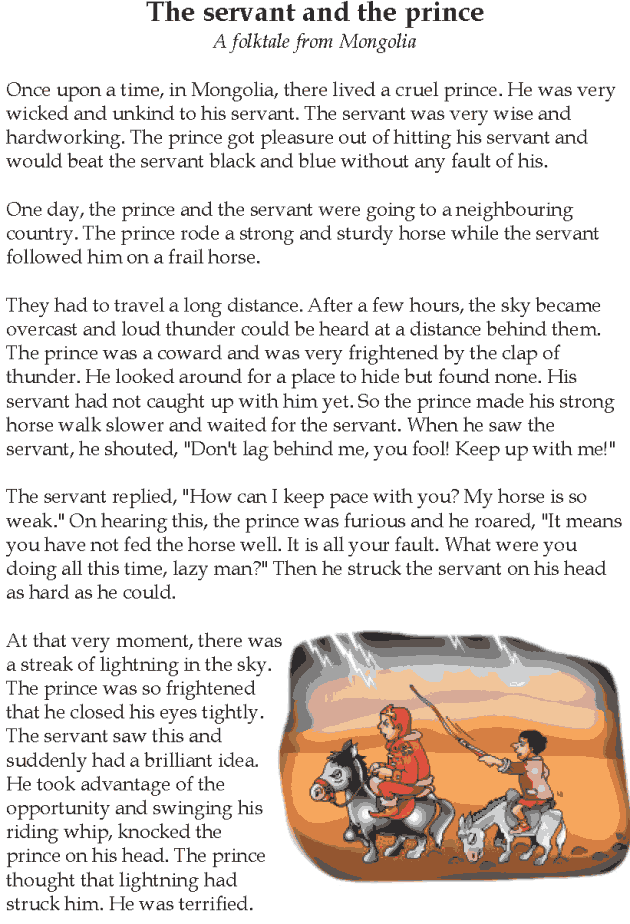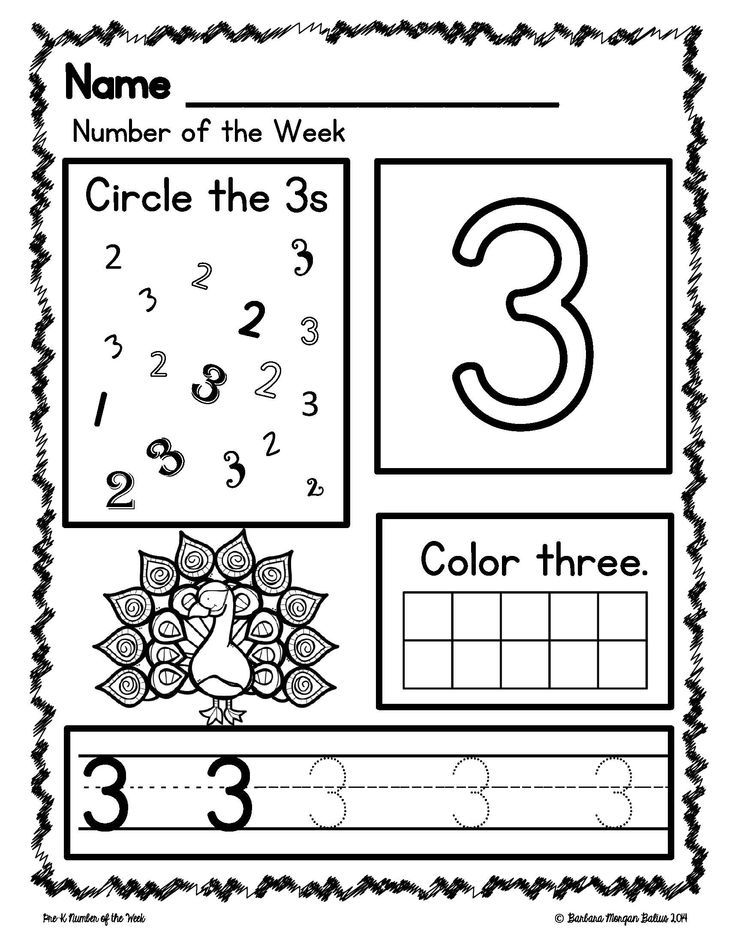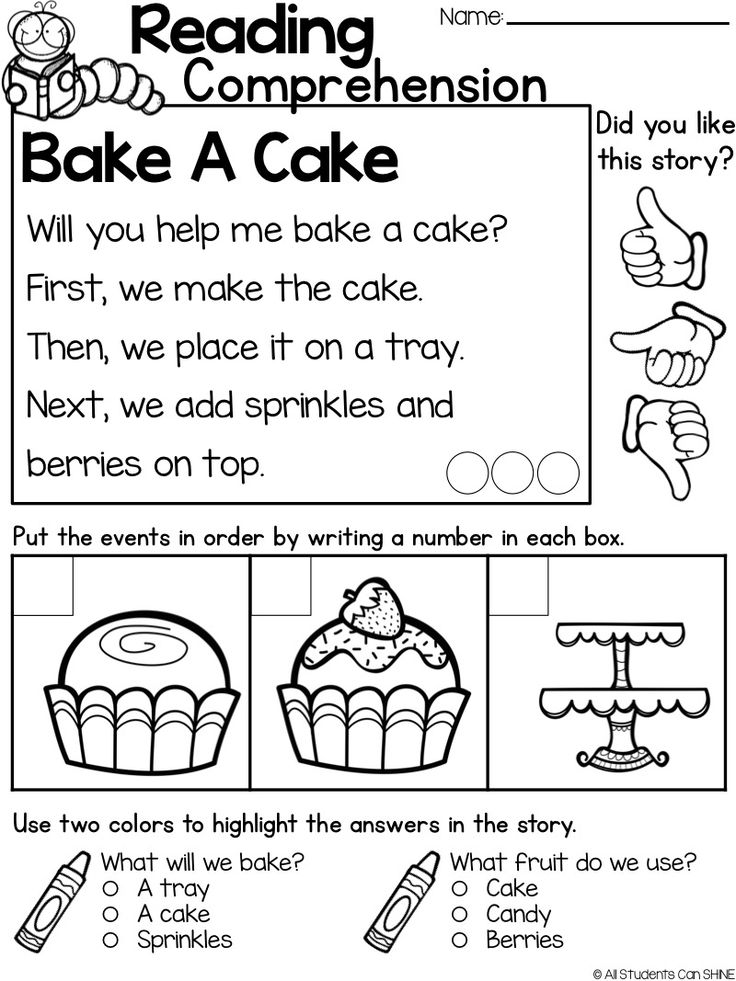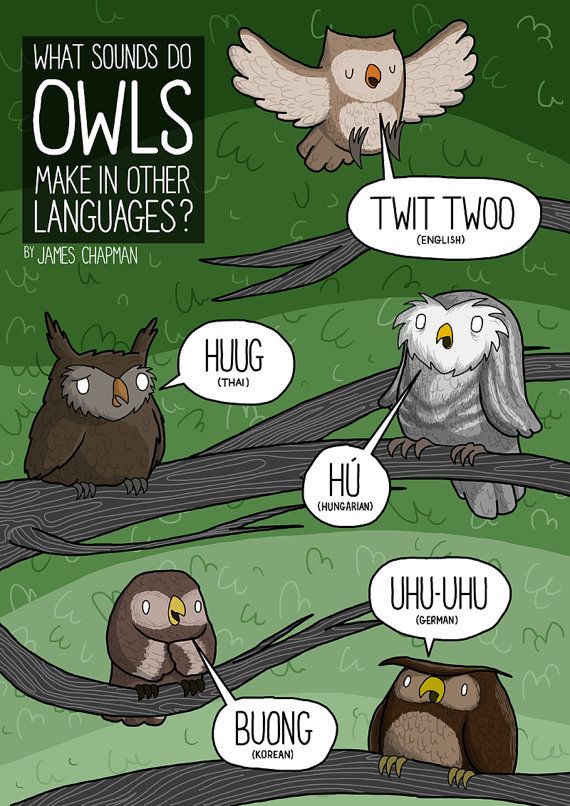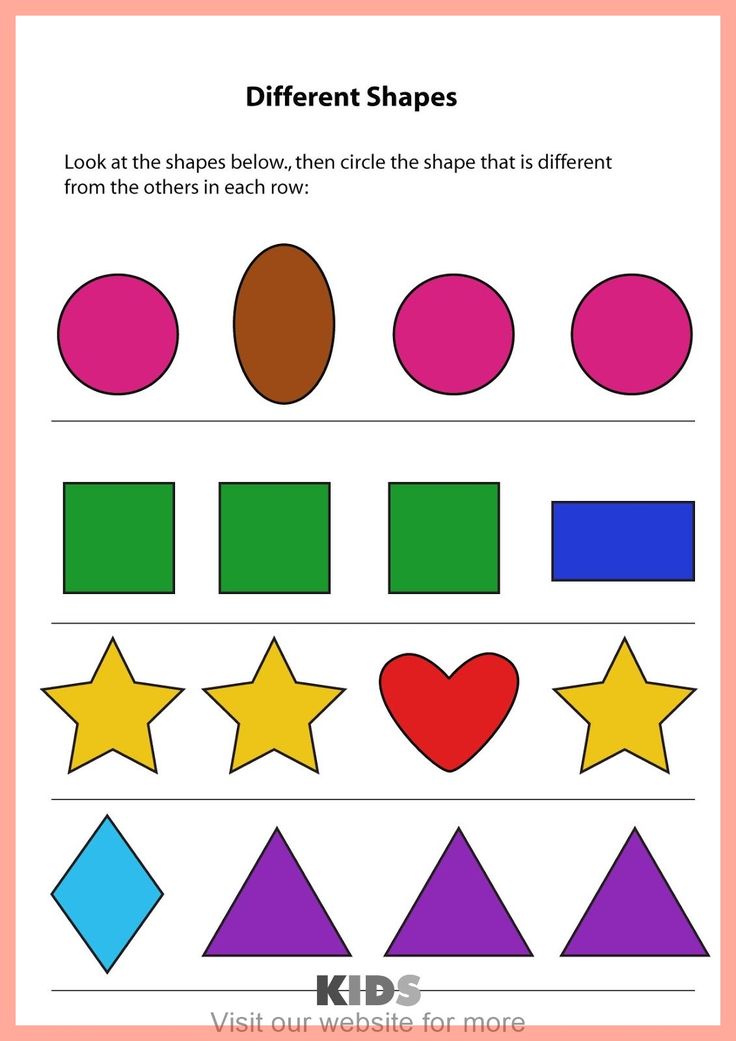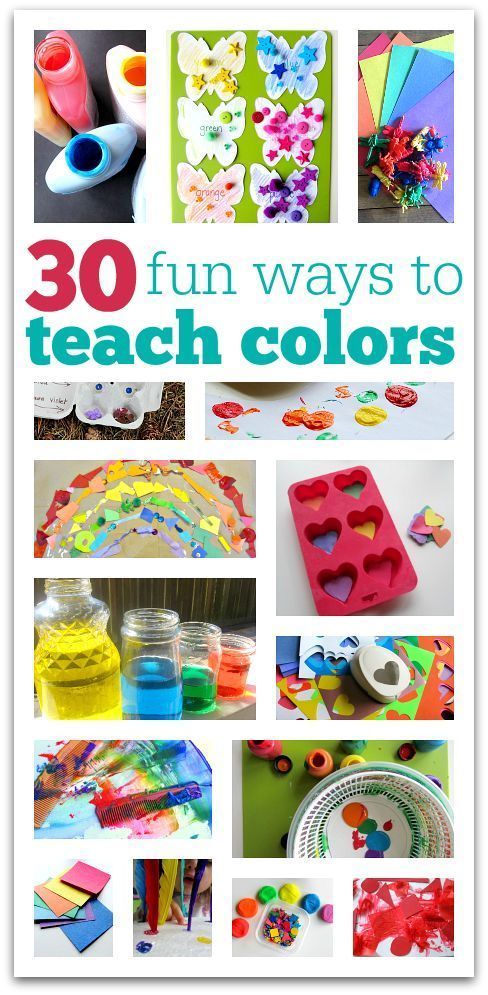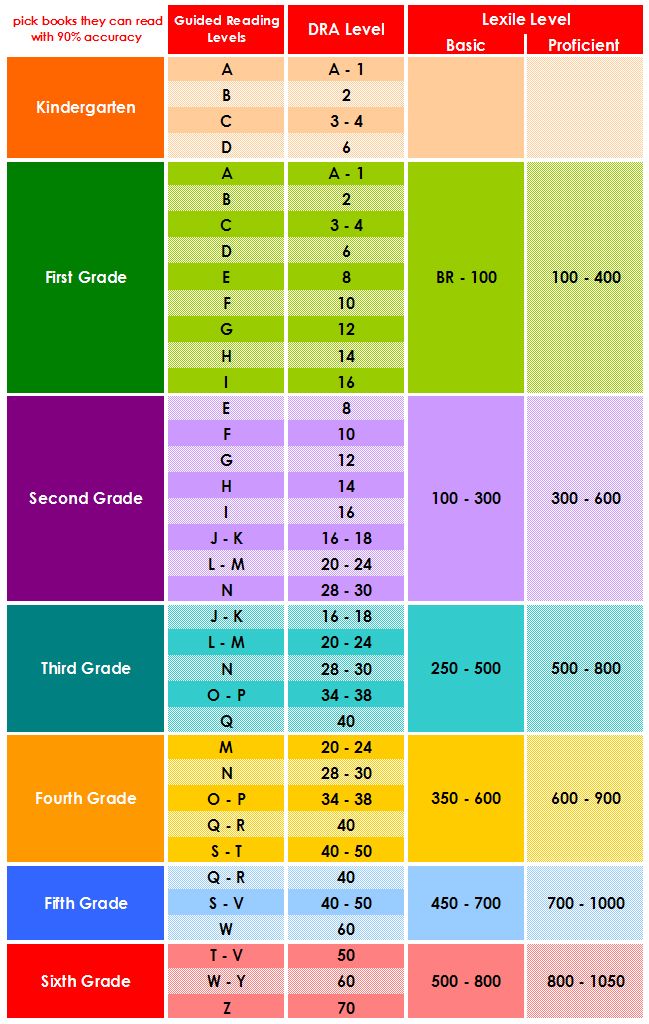Fun ways to write spelling words
45 Ways to Practice Spelling Words
This post may contain affiliate links. Read the full disclosure for more information.
Looking to add some fun to your homeschool day?
Spelling is the perfect chance to do that. With the boring routines of math, social studies and science pushed aside, you can add some jazz to the words on your spelling list, making it more fun for the whole family.
Long gone are the days of writing your spelling words 10 times each, with your boring notebook and pencil. We don’t have to be boring, so why should we? Swap that Number 2 pencil for a squirt gun and practice your spelling words in style.
Adding some fun hands-on activities to practice spelling words will make your little ones look forward to spelling time.
Q-tip Painting:
Use a cotton swab and paint to write your spelling words. Bonus points: you likely already have the supplies on-hand.
Salt Writing:
Dump a large container of salt into a small lidded container and use your finger to practice your words. Older kids will enjoy this same activity using chopsticks instead of their finger.
Play-doh:
Whether you choose to roll your Play-doh into a snake and spell out your words or roll it flat and carve them into it, this fun activity will be a hit with kids of all ages. For some extra fun, see who can come up with the most creative way to use Play-Doh to practice spelling words.
Shaving Cream:
Squirt some shaving cream onto a cookie sheet and allow your child to scribe their words. Add some fun with a squirt of food coloring. Use your finger or give them some “tools,” like a spoon or dry spaghetti.
Candy Writing:
Use Skittles, M&Ms, Smarties, Twizzler Pull’n’Peels or other candy to write your words. The built-in treat encourages the kids to finish quickly so they can eat their words. For healthier options, use carrots, celery or grapes to form words.
Paper chain spelling:
Cut strips of construction paper and add one letter to each strip.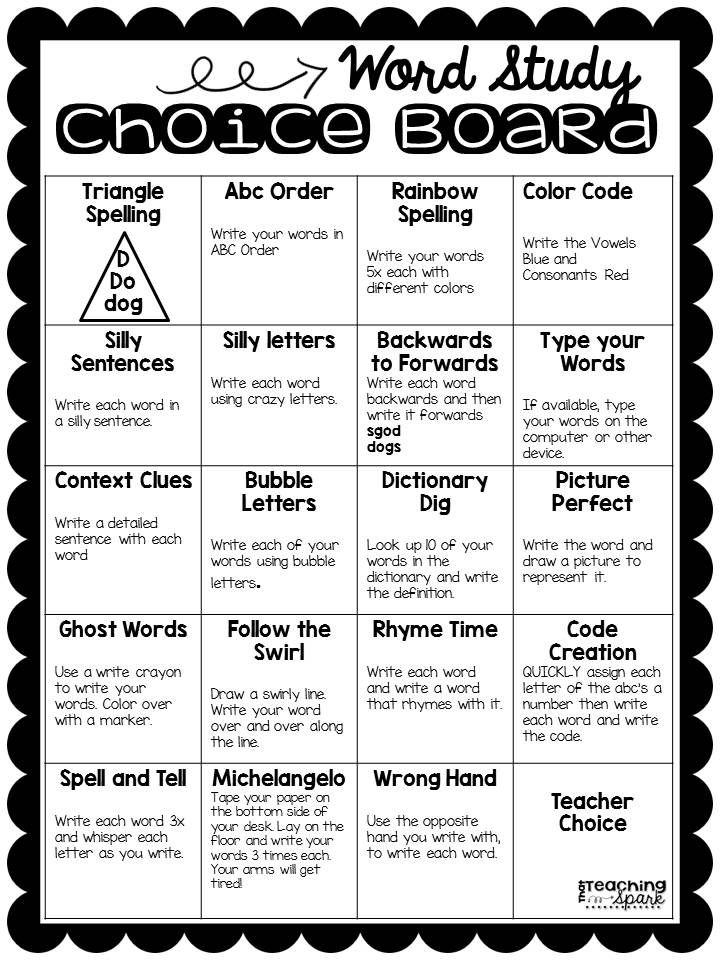 Mix up the letters and have your child find the letter he needs. Staple the lettered strips together to make a paper chain.
Mix up the letters and have your child find the letter he needs. Staple the lettered strips together to make a paper chain.
Hopscotch Spelling:
Instead of using numbers on your hopscotch board, write words. The kids must spell the word on the spot before moving on.
Team Spelling:
Work together to spell your words. This fun way of spelling will be sure to keep you laughing, too! Once you’ve mastered your list, try Team Gnilleps. We learned this fun game while playing Cranium. Each person says the next letter of a word, starting from the END! It’s much harder than you’d think!
Backwards Spelling:
Also known as Gnilleps, this hilarious spell-out-loud game is the perfect way to practice the words that come easy to the child.
Chalk:
Using sidewalk chalk is always fun for kids, so get outside and soak up some sunshine while working on spelling.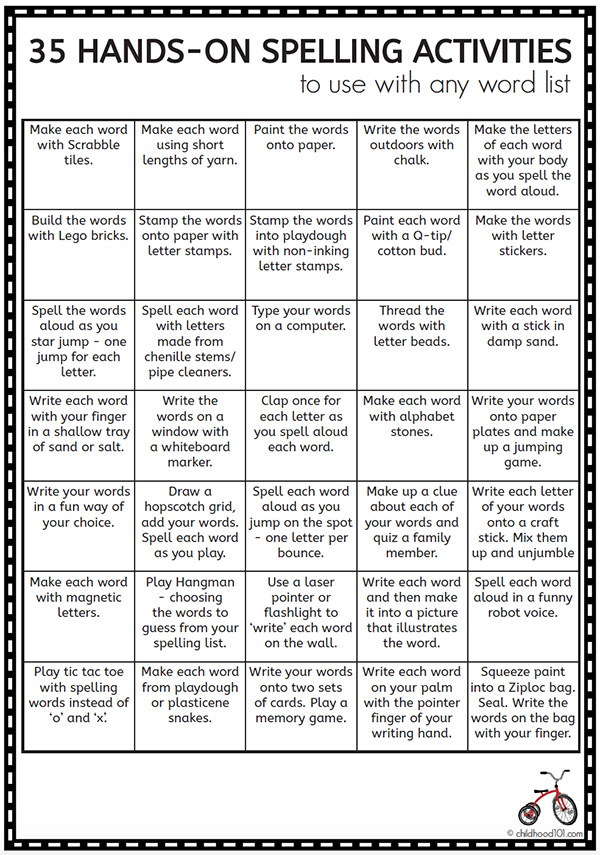 Once you’re done with your chalk words, kids can trace the letters again by spraying them with the water hose!
Once you’re done with your chalk words, kids can trace the letters again by spraying them with the water hose!
Window Writing:
Use markers (NOT Sharpies) to write on the glass panes of your windows. The kiddos will experience a subtle reminder every time they look outside and when it’s time for a new list, they’ll gladly clean your windows for you! 😀
Bathtub Writing:
Practice spelling during bath time and the kids will be having too much fun to grumble. By sneaking spelling practice in during an unexpected time, the kids probably won’t even notice. We like to switch between bath tub crayons and paint.
Feather Painting:
Use the tip of a feather to paint your words on a large sheet of paper. Older kids may enjoy using their feather as a quill pen while younger kids will get a kick out of swiping it through a pile of paint.
Rock Paint:
Begin by collecting 26 small, flat rocks.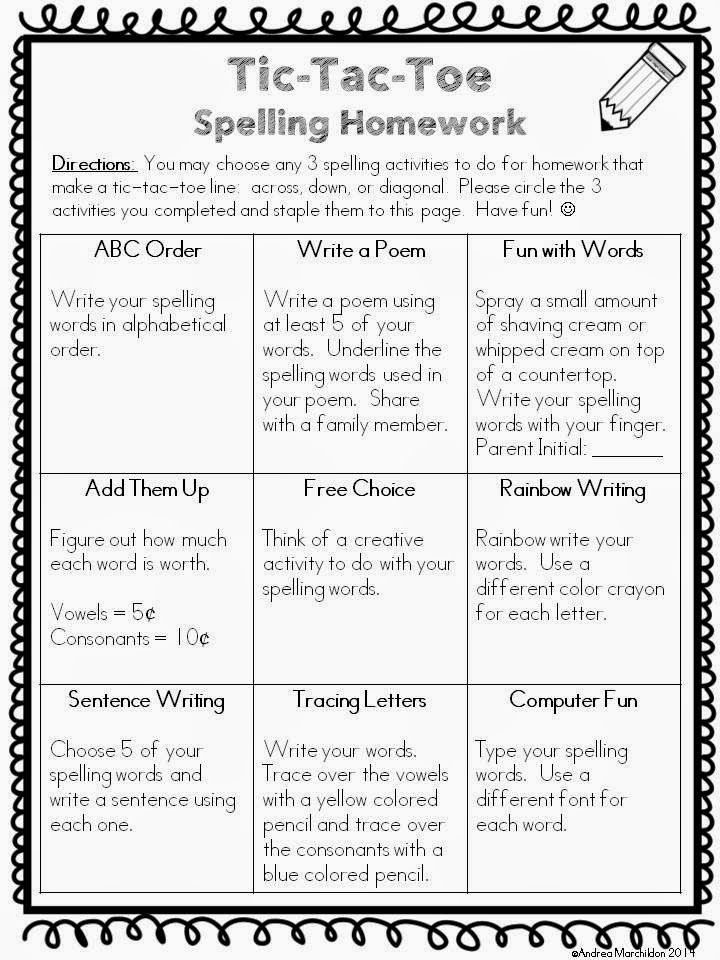 After giving them a thorough wash, allow your child to paint each rock with one letter. Decorate them however they choose. The brighter, the better. Use these rocks to spell out each spelling word. You will likely need more than one of each letter. You’ll certainly need multiple vowels. Once your collection is complete, you’ll have a learning tool that’ll stand the test of time.
After giving them a thorough wash, allow your child to paint each rock with one letter. Decorate them however they choose. The brighter, the better. Use these rocks to spell out each spelling word. You will likely need more than one of each letter. You’ll certainly need multiple vowels. Once your collection is complete, you’ll have a learning tool that’ll stand the test of time.
Clothespin Spelling:
Write each letter on a small piece of paper. Encourage your kids to use a clothespin to pick up the letters they need to form a word. Not only will this make spelling more fun, but will also help build their fine motor skills.
Magnets:
Pick up a set of alphabet magnets and allow the kids to practice their spelling lists on the refrigerator! It’s also fun to leave little mesages to each other using these cheap and fun letters.
Scrabble/BananaGrams:Bananagrams is a favorite at our house, so we love grabbing the handy bag of letters and using them during spelling practice.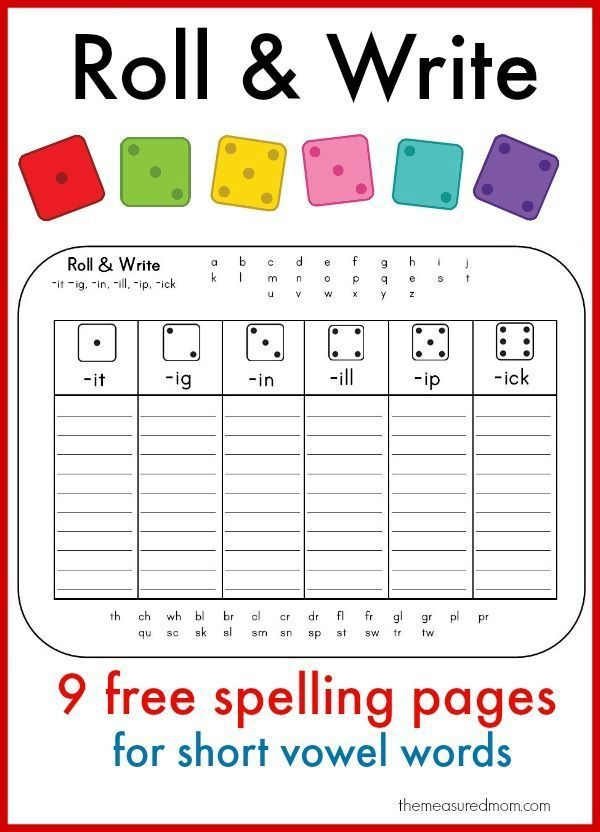 Stack the letters in a tower and allow the kids to guess what the spelling word is, using the top tile (and last letter of the word) as their only clue!
Stack the letters in a tower and allow the kids to guess what the spelling word is, using the top tile (and last letter of the word) as their only clue!
Type ‘Em:
Kids love to type and spelling words are the perfect practice for them. Open your computer’s word processor and let them get to work.
Add “Sum” Fun:
Have the kids write their spelling words and assign 10 points to each consonant and 5 points to each vowel. Add the sum of each word and find the word with the highest amount of points.
Magic Spelling:
Have the kids write their spelling words on white paper with white crayons. Then color over the words with bright water colors and watch your words appear!
Stamp It Out:
Pick up a set of letter stamps and an inkpad. Allow the kids to stamp their words, instead of writing them.
Beads:Use lettered beads to spell out your entire list. (Beads are a choking hazard, so please be careful when allowing younger children to use these.)
(Beads are a choking hazard, so please be careful when allowing younger children to use these.)
Bendaroos-
These bendable sticks are so much fun for kids to use. The best part is that you can reuse them time and time again.
Pipe Cleaners:
For younger kids, you can write their words on paper and allow them to “trace” them with pipe cleaners. They can bend and shape the pipe cleaners as needed to form each word.
Fancy Fonts:Allow your kids to use bubble letters, cursive and other fun fonts to write their words. It’s easy to learn how to write in creative fonts using books. Plus, you can count it as an art lesson, too!
Draw It:
Draw a picture and “hide” the spelling words in the picture. Add the word “tree” in the trunk of the tree on your photo. The word “car” could be hidden in the wheel of your child’s drawn car.
Space Trace:
Use your finger to write the words in the air.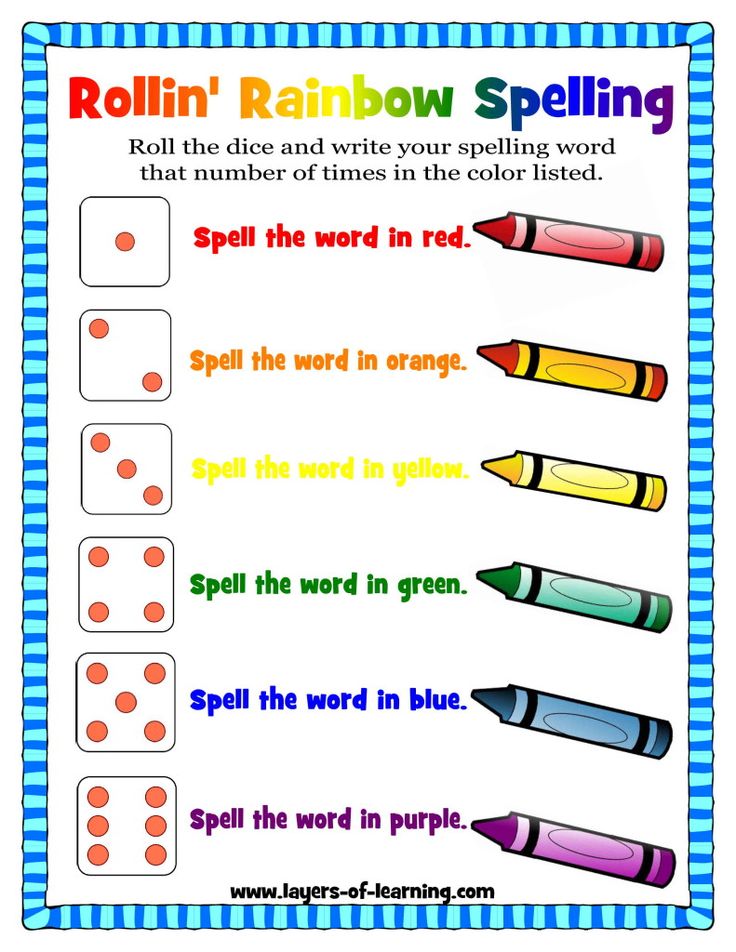 Simple, easy, cheap and can be done in the car!
Simple, easy, cheap and can be done in the car!
Baggie Painting:
Add some paint to a baggie and seal well. (We like to add duct tape to the opening, to make sure it doesn’t accidentally come open.) Use a Q-Tip to trace your words onto the outside of the baggie. When you run out of room for words, simple mix the paints together and start again.
Textured Spelling:
Bring texture to spelling time by writing your words with yarn, rope or string. Whether you choose to glue them to paper or just arrange them neatly on the table, kids will love the added texture this activity brings.
Glue & Glitter:
Write your words in glue, then add glitter for some messy fun that will have mom grumbling about the mess for days! (Hey, neat-freaks! Take this one outside if you must.)
Snack Spelling:
Use Cheez-It Letters to help memorize your spelling words. This activity can be done using alphabet soup, Alphabits cereal, homemade pancakes or even homemade cookies!
This activity can be done using alphabet soup, Alphabits cereal, homemade pancakes or even homemade cookies!
Jumping Jack Spell Aloud:
Help your child practice spelling words while doing jumping jacks. Find a rhythm and spell the same word 5 times before moving on. Antsy kids will love releasing some energy while completing their work.
Paint with Water:
Use a paintbrush and water to write your spelling words on construction paper. Work quickly before your work dries up.
Clap and Spell:
Clap along with your little one while they shout out the letters to their spelling words. Sinple and you eon’t need a single item. You can do this one anywhere: the bathtub, car or on your walk to the library!
Magazine Letter Find:
Cut out letters from old magazines and arrange them neatly on your paper. If you want, you can glue them to the paper or reuse the letters time and time again.
Looking for a fun way to drill that one pesky word into your child’s mind? Allow them to carve the letters into a bar of soap, using sculpting tools. They’ll have to think about each letter, which helps engrave the spelling into their mind. Save some money by grabbing the small bars of soap from hotels and saving them for this activity.
Hangman:
Encourage the whole family to join in on a game of Hangman. Mix in previous spelling words to make it even more challenging.
Text Spelling Words:
Kids love feeling like a grown-up. Hand over your phone and allow them to text their spelling words. You can either delete their work or send it to Grandma. Either way, it’s sure to be a hit!
Do-Dot Spellers:
Use Do-Dot Markers to dab your words onto construction paper. Don’t have Do-Dot Makers? No problem! Bingo daubers work just as well.
Fingerpaint:
Allow your kiddos to practice their spelling words with cheap finger paint. Any reason to get messy makes kids smile! Instead of using construction paper, take the kids outside and let them paint a huge piece of cardboard!
Water Paint:
Use a paint brush and a bucket of water to paint on the side of your house. The kids will LOVE it and it’ll dry mess-free.
Letter Stomp:
Write the letters on pieces of paper and dump them on the floor. Spread them out so you can see each letter then have the kids race to see who can stomp on each letter of their spelling words the fastest. (For added fun, use a stopwatch and let them beat their own time.)
Slap-Jack Spelling:
Make your own deck of cards with your previous spelling words written on them. Pick 2 or 3 words and have the kids SLAP them, as soon as they get flipped over.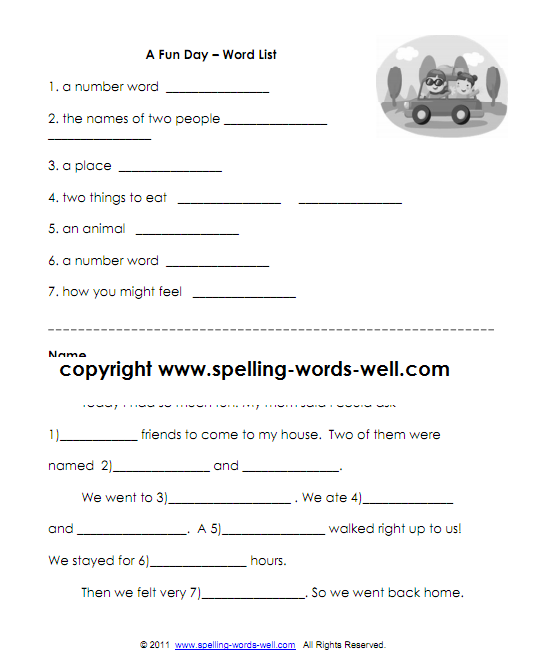 This fun take on Slap-Jack will help the kids spot their spelling words quickly.
This fun take on Slap-Jack will help the kids spot their spelling words quickly.
Hot Potato Spelling:
Sit in a circle and pass a potato. Before you can pass the potato, you have to give the next letter of your word. Spell as many words from your list before time runs out.
Blind Spelling:
Close your eyes and try to write your words without your sight. Another fun idea is to use the opposite hand that you usually write with and see how funny your words look.
With these 45 hands-on ideas to practice spelling words, you can throw your boring ways out the window and enjoy some fun, all while mastering your spelling lists.
Fun Ways to Practice Spelling Words
Spelling words are a fact of life with elementary school kids.
I remember them clearly from my years in school and we’ve had plenty of years of practice with my own two girls.
My struggle has always been making them interesting.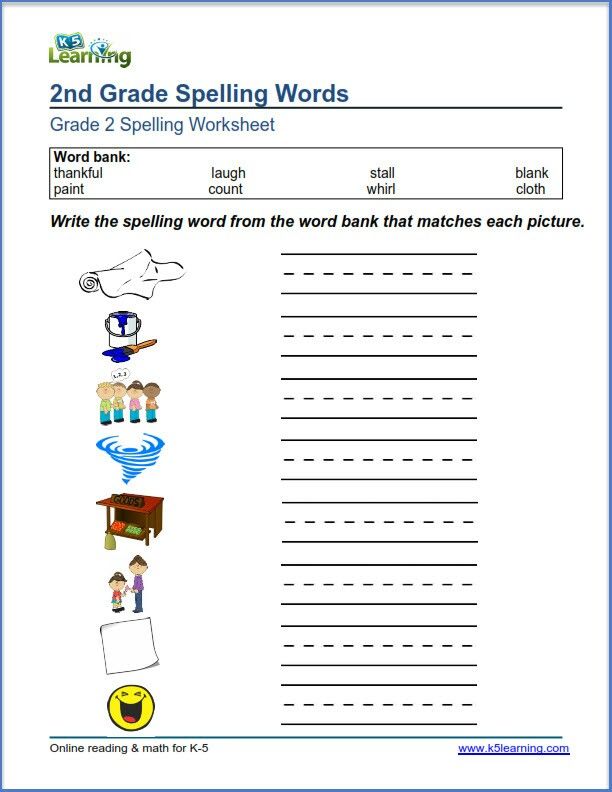 We’ve got to practice them, right? So, how can we have fun?
We’ve got to practice them, right? So, how can we have fun?
Luckily, there are many fun ways to practice spelling words that you can try. Here are over 30 ideas that will keep your spelling work fun and interesting.
Disclosure: There are Amazon Affiliate and other affiliate links in this article which means, at no additional cost to you, we could receive compensation for our recommendations. You can read our full disclosure policy on our Disclosure Page for more details.
How to Make Spelling Fun
For the longest time, the only ideas for practicing spelling words I could come up with were practice tests and writing them over and over and over again. Boring!
So, let’s think outside the box to come up with some ways to make spelling fun.
Here’s some things to consider:
Can we use something other than a pencil to write our words?
How can we take our work outside?
Is there a way to keep active kids moving?
What unique supplies can I find to help with our homework?
In addition to these questions, you also need to think about your child’s interests. Do they enjoy art? Do they love LEGOs? What are their favorite toys and activities? And, can you incorporate that into your spelling homework in order to make it more fun?
Do they enjoy art? Do they love LEGOs? What are their favorite toys and activities? And, can you incorporate that into your spelling homework in order to make it more fun?
Also, make sure you have several ideas in your pocket. Try some of these spelling activities for ideas – there are over 30 activities listed. You’ve got to mix it up and provide some variety!
Fun Ways to Practice Spelling Words
In the following list you’ll find many different ways to learn. There are active ideas and artistic ideas. Some activities are fine motor and others are gross motor.
No matter what you child enjoys, you’ll find some great options to help make their spelling homework fun.
How to Study Spelling Words
Now that you’ve got a ton of ideas, how do you use them to actually study and learn your words?
When you sit down with a new spelling list with your child. Go through the words with them. Specifically, look for any spelling rules that they need to keep in mind.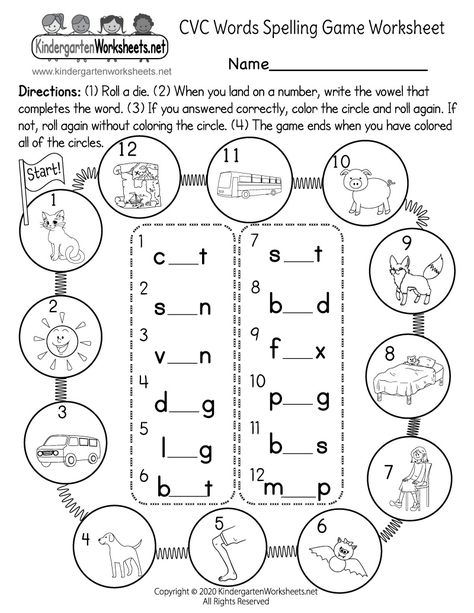 Do the words have silent e’s? Are there any consonant groupings (such as ch or st) or vowel groupings (such as ea or ai)? You can refer to this list of spelling rules for help.
Do the words have silent e’s? Are there any consonant groupings (such as ch or st) or vowel groupings (such as ea or ai)? You can refer to this list of spelling rules for help.
Another thing to keep in mind is repetition. Reading through your list multiple times won’t do the trick. You need to actually spell them and write them, sometimes over and over again.
Some words will be easy to learn (or your child already know how to spell them) and others will be harder. When practicing, you don’t need to give equal weight to each word. Some days you may only want to use the tricky words in your spelling activities or just focus on the one word that your child is stuck on. An activity like Pinprick Words is perfect for those times when you need to go over one or two specific words.
Ways to Practice Spelling Words At Home
While these activities are intended for both classroom at home, every one of them will work as after school practice.
Once you’ve tried out several ideas, decide which ones were favorites. These are the activities that we’ll want to prepare for by gathering (or purchasing) supplies and setting up a spelling homework station. This way, you don’t have to prep activities every single day.
These are the activities that we’ll want to prepare for by gathering (or purchasing) supplies and setting up a spelling homework station. This way, you don’t have to prep activities every single day.
Just because you prepare for certain activities doesn’t mean that you can’t do some of the other ideas!
You don’t need anything fancy to set up your supplies in a homework station. I’d suggest just a box or bin that could be easily put away and easy for your child to use. A small storage bin with a lid and handle would be perfect! Once you’ve found your bin, just fill it with the supplies you need.
If you don’t have a place to tuck away your bin, you can store your supplies in a cute, decorative bin. Here’s a pretty rustic wooden supply caddy that would look cute sitting out on a desk.
You can shop my list of spelling homework supplies here.
More Resources for After School Learning
Hundred Chart Activities to Make Math Fun
Fun STEM Projects for Kids
Fun Addition Fact Games for Kids
Do You Want to Do More Activities With Your Family?
Join our fun Facebook community, Creative Family Fun for Busy Families, for daily activities that are great for kids and families. We’ll chat, share, and have fun. It’s a safe and private place to share ideas for family and kids activities.
We’ll chat, share, and have fun. It’s a safe and private place to share ideas for family and kids activities.
I’d love for you to join me! Just click the link below, request to join, and answer the questions (they’re easy, I promise). Come join the fun! Join the Creative Family Fun for Busy Families community here.
The following two tabs change content below.
- Bio
- Latest Posts
Terri is a writer and mom of two elementary-aged girls. She has a passion for learning and is always looking for ways to make learning fun. You can find her here writing about fun learning activities, art, craft, and family fun ideas.
25 words, the writing of which confuses many
February 23, 2021Education
How to write complex words correctly and remain a literate person.
Share
0 You can listen to the article. If it's more convenient for you, turn on the podcast.
1. Traffic
In English, traffic is indeed spelled with a double consonant. However, when borrowing from a foreign language, the second letter is usually lost, which happened with the word “traffic”, so you should write it with only one “f”.
2. Future
The word "future" often gets the letter "u" by analogy with the word "next". But it is easily disassembled into the root bud- and the suffix -usch-. There is simply no place for an additional sign. If spelling is difficult, you can try to remember through the synonym "future". Still, even those who doubt very much will not raise their hand to write “the coming one”.
3. Offline
The word “offline”, like “offshore”, “offside”, which are close to it, lost a double consonant when they were entered into dictionaries, which is typical for borrowings. At the same time, if the spelling “offline” can still be explained by confusion with the original language, then the version “offline” is puzzling: in English, the word is also written without a hyphen.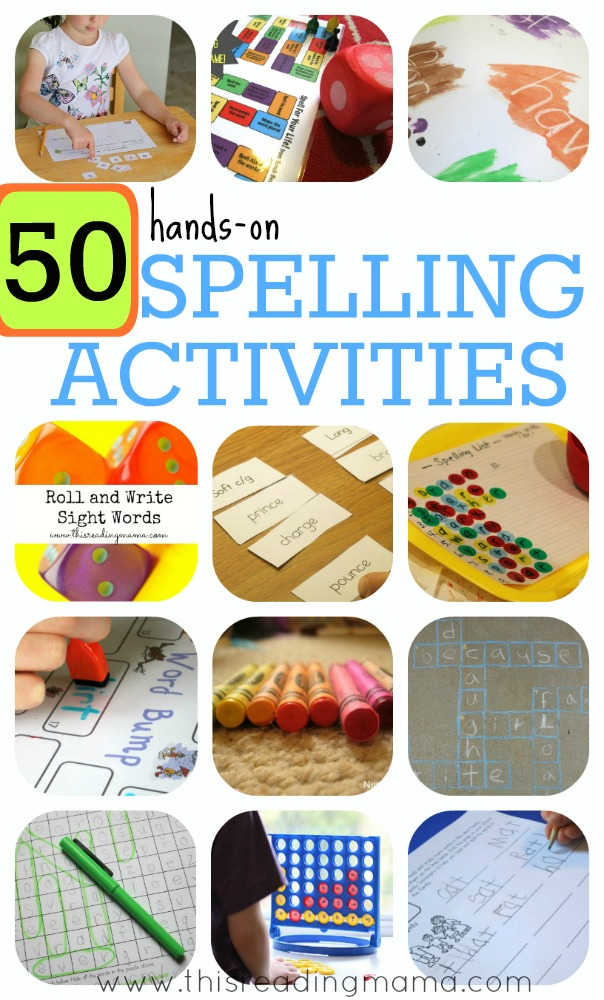
Check 🧐
- TEST: Together, separate or hyphenated? Write 10 words without mistakes!
4. Rinses
If you're not talking to your washing machine, it's hard to imagine in what situation you might need the word "rinse". But just in case, it’s worth remembering that you need to correctly give out instructions with the word form “rinse”.
5. Producer
Probably, the extra "s" is formed by analogy with the word "director". But in both Russian and English, “producer” is written without doubled consonants.
6. Come
The word has gone through many transformations. In old books, it can be found in the versions "come" and "come". Yes, and the analogy with "go" is clearly visible. However, in dictionaries it is fixed only in one form - "to come."
7. Grapefruit
No matter how much one would like to make "grapefruit" a full-fledged "fruit", this word is pronounced in the same way as in the language from which it was borrowed.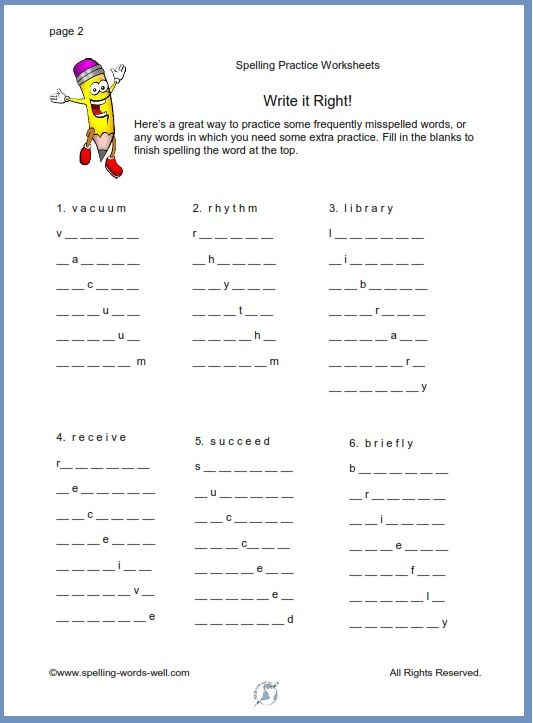 Otherwise, the first part of the word would have to be Russified, but “grape fruit” does not sound very attractive.
Otherwise, the first part of the word would have to be Russified, but “grape fruit” does not sound very attractive.
8. Blogger
For foreign words that extort a second consonant, there is a rule: if there is a single-root word, then you should use only one letter from the double ones. A blogger maintains a blog, so he is not allowed to use extra letters.
9. Hardly
According to Fasmer's etymological dictionary, the unchanging particle "hardly" comes from the word "row", it can be used as a test word. And the “li” particle is always written separately, so do not be lazy to press the spacebar.
10. Imagine
Frankly speaking, the word “imagination” does not exist in the overwhelming majority of dictionaries and literary Russian. But it has a certain semantic connotation and can look cute in colloquial speech. At the same time, one does not need to be a linguist to sob with bloody tears from the "vybrazhuli". So check "imagination" with the word "imagination" and spare other people's eyes.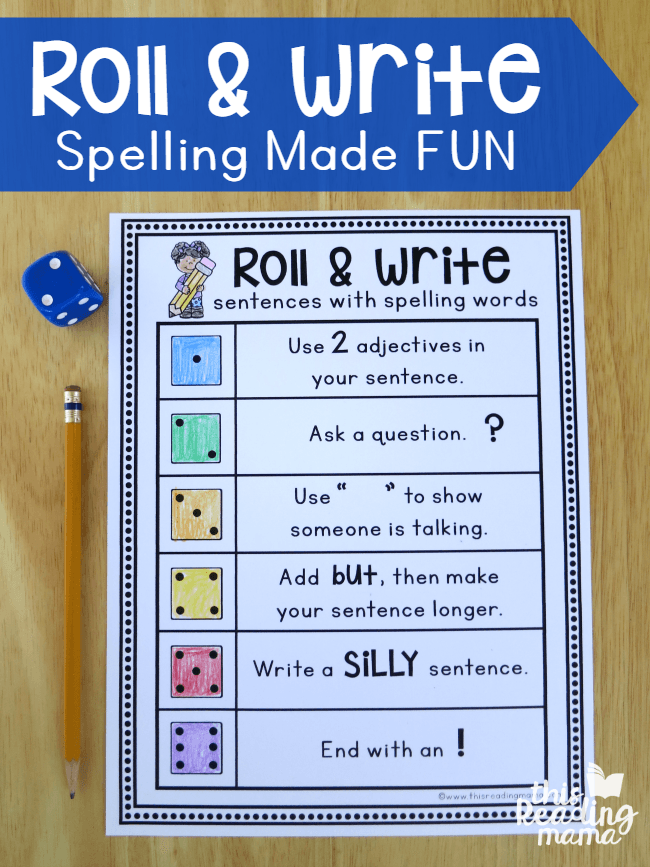
11. Ice cream
If ice cream means a calorie bomb made from milk or cream, then one “n” should always be written in this word. This noun is formed from an imperfective verb, the letter in such cases is not doubled.
Fill in the letters 🎓
- QUIZ: How good are you at spelling double consonants?
12. Cappuccino
In the Italian language, from which the name coffee with milk foam comes, the word cappuccino was generously sprinkled with consonants. But in Russian, none of them is doubled. Therefore, you can nod understandingly when once again instead of cappuccino on the menu you will meet “cappuccino” or “cappuccino”.
13. Mosaic
Whether it's a picture of tightly packed pieces of glass or a children's puzzle, forget about bunnies and write correctly: mosaic.
14. Handwriting
The insidious "d" tries to fit in here, but it has no place in the word "handwriting". Because when you sit down to write a text by hand, you do not intend to emphasize anything, but rather to underline.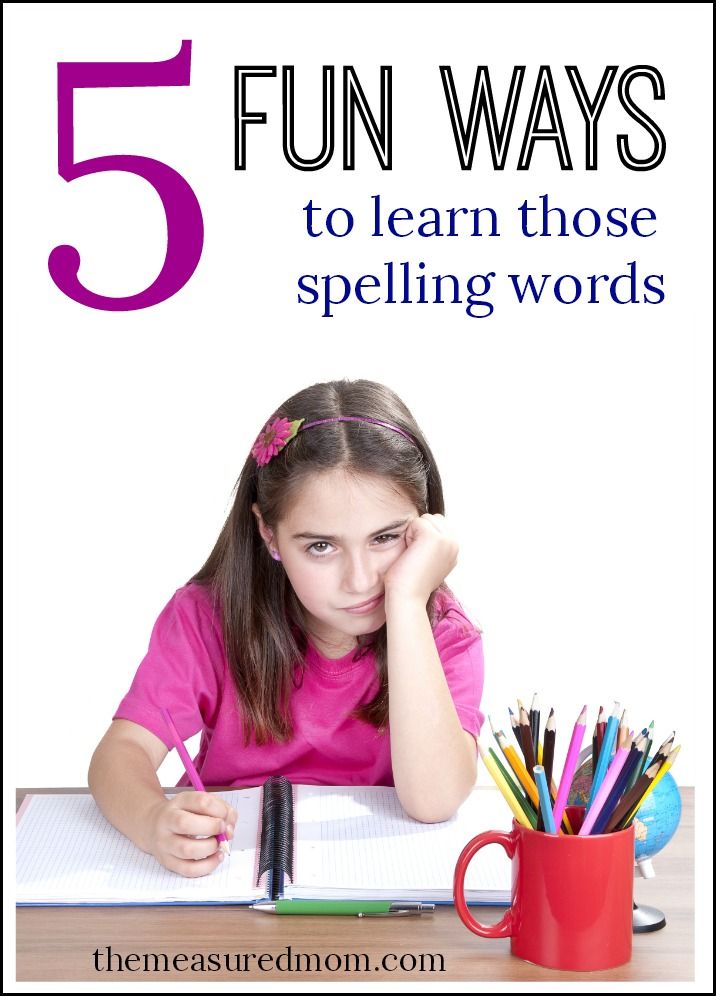
15. Bulletin
“Bulletin” is a dictionary word, so you have to memorize it. The fact that it came from the Latin bulla - “ball”, “seal” can help in this.
16. Legitimacy
There are many options for manipulating the word "legitimacy", but it's better not to do this and just remember how it is spelled.
17. Realtor
It is difficult to avoid confusion with the word realtor. Office programs do not underline it in red in any spelling, the “Russian Guild of Realtors” insists on the letter “e” in its name, and even the authors of dictionaries cannot come to a consensus. And yet, in the most authoritative Russian spelling dictionary of the Russian Academy of Sciences, edited by Lopatin, the form “realtor” is fixed, it is better to stick to it.
18. Registration
The check word “register” will help you find out which letter is hidden in place of an unstressed vowel and will prevent you from writing “registration” incorrectly.
19. Gynecologist
Gynecologist is not related to the word "gene", but is very closely related to the Greek "gyneka" - "woman".
20. Gastarbeiter
Remembering how the word "guest worker" is written is simple: in German gastarbeiter consists of two parts: gast - "guest" and arbeiter - "worker".
21. Colander
Another word from the German language, where the letters tend to get mixed up. "Colander" comes from durchschlagen, which breaks down into durch - "through", "through" and schlagen - "hit". But if the etymology does not help to remember the correct order of the letters, you can go the associative way, especially since the word is so consonant with a popular curse word.
22. Calories
The word "calorie" was borrowed from French. Calorie entered the Russian language practically unchanged, there are no double consonants in it.
23. Vinaigrette
The name of the salad comes from the French vinaigre - "vinegar", and it - from the word vin - "wine".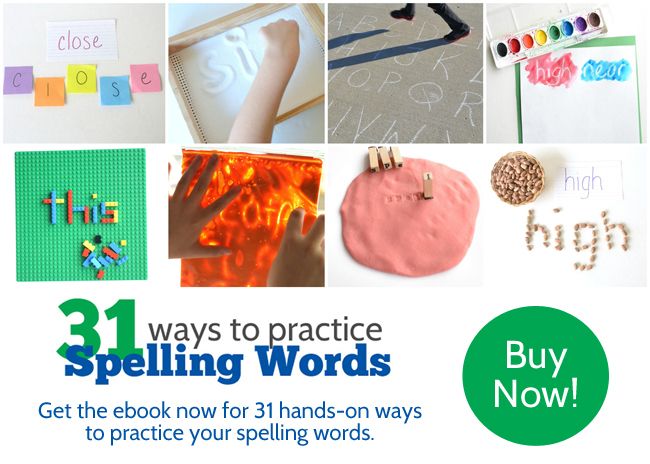 This makes it easier to remember how to properly describe the vegetable mixture. As for the second vowel in a word, it is enough to remember that it does not coincide with the first. Then you will write "vinaigrette" without a single mistake.
This makes it easier to remember how to properly describe the vegetable mixture. As for the second vowel in a word, it is enough to remember that it does not coincide with the first. Then you will write "vinaigrette" without a single mistake.
24. Shopping
In English, shopping is spelled with a double consonant, and many people want to transfer the two "p" and into Russian. Fight this desire and remember that there are words with the same root, for example, a shop tour. And if they use only one "p", then in "shopping" you do not need to double the consonant.
25. Terrorist attack
The abbreviation of the phrase “terrorist act” begs for a second consonant, but you should not negotiate with him. According to the rules for the formation of abbreviations, only one of the two consonants is written in them. Therefore, it is correct to write "terrorist attack".
What words do you stumble over? Write in the comments.
Read also 🧐
- 12 borrowed words that are easy to make mistakes
- 20 words that even literate people spell incorrectly
- “From that” or “from that”? 19 words and combinations that are easy to misspell
20 words that even literate people spell incorrectly
January 30, 2021Education
A new portion of literacy with life hacks that will help you remember all the difficult cases.
Share
01. Offhand
Wrong: offhand.
So it incites to divide the word into two parts, but this is a mistake. It answers the question "How?" and is an adverb, therefore it is written together. But it is easier to remember by synonyms that cannot be written separately: approximately, arbitrarily.
2. Subscription
Wrong: subscription.
For some reason here and there they offer to buy a "subscription". Indeed, the ill-fated “and” is heard in the word. There is no way to check the spelling, because the lexeme is a dictionary one. But you can remember if you pick up a paronym-rhyme with the letter "e" - the subscriber. In both cases, the letter "and" is not the place.
3. Next
Wrong: next.
The difficulty arises because the letter "u" is not heard in oral speech. To avoid making a mistake, just silently say to yourself: “I follow th means next th .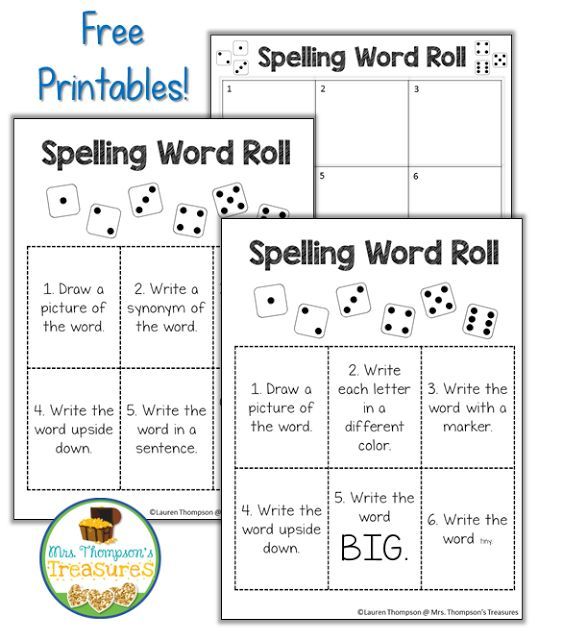
4. Future
Wrong: future.
By the same principle as above, it is easy to remember the spelling of this word: "I will be - hence the future."
5. Cardinal
Wrong: cardinal, cardinal.
Whatever variants of this word the Internet has seen, even with a double “o” at the beginning. But once and for all remember how it is spelled, the "Etymological Dictionary of the Russian Language" by Max Fasmer will help. "Cardinal" happens "The Etymological Dictionary of the Russian Language" by Max Fasmer - Cardinal from the Latin word cardinalis, which means "chief". The letter "a" is written in both cases.
6. Boycott
Wrong: boycott.
The letter “o” in this word is not perceived by ear, hence all the problems. You can understand why it is still written differently from its origin. We borrowed "Dictionary of Foreign Words of the Russian Language" - Boycott is a word from the English language, which it entered thanks to the Irish estate manager Charles Boycott (Charles Cunningham Boycott).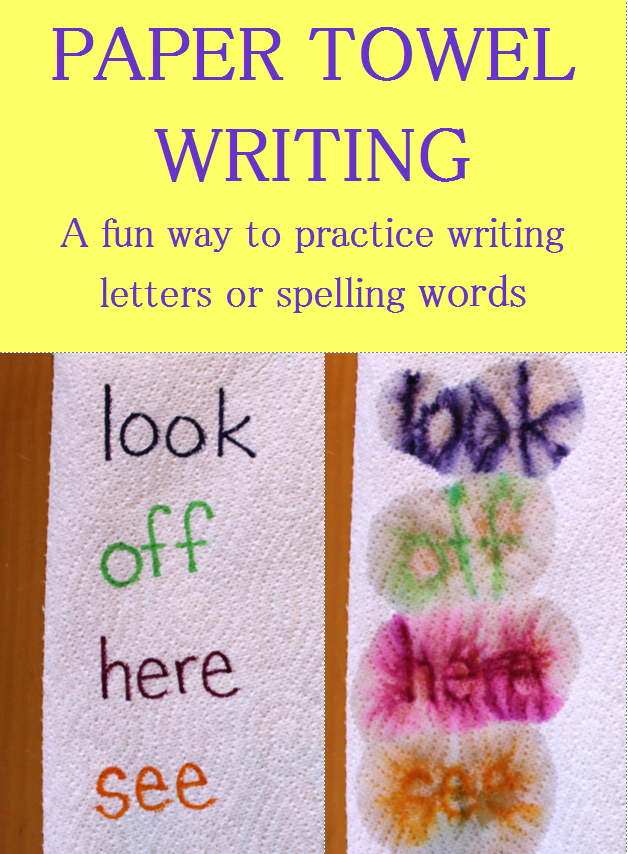 He was too demanding, and in 1880 the land tenants refused to pay him, declaring a boycott. The man received an unflattering fame, and we - the letter "o" in this word.
He was too demanding, and in 1880 the land tenants refused to pay him, declaring a boycott. The man received an unflattering fame, and we - the letter "o" in this word.
7. Grand Prix
Wrong: Grand Prix, Grand Prix, Grand Prix.
For those who know French, the hyphen may seem superfluous here. And even the unnecessary "d" strives to get in the way. Because in the original it looks like this: grand prix. But in this case, the borrowed word has two roots: -Gran- and -pri- . In a foreign language, each of them can exist independently; in the Russian Grand Prix, it is a compound word. Because it is composed of two roots, and a hyphen is necessary between them.
8. Linoleum
Wrong: lenolium, linoleum, linoleum.
Poor flooring has been suffering from writing, it seems, since its inception. Unfortunately, there is no way to check the spelling. But let's turn to the original composition of linoleum, it lies in the name itself. From the Latin linum is translated as "flax", and oleum - "oil". By combining these two words, we get the only correct spelling.
From the Latin linum is translated as "flax", and oleum - "oil". By combining these two words, we get the only correct spelling.
9. Low visibility
Incorrect: hardly noticeable.
I really want to break the word into two parts, and this is even understandable: there are two roots here - -small- and -notice-. But then the question arises where the letter “o” came from. Everything is very simple: it is an interfix and just connects two roots, making the word complex. Therefore, we will write it together, like other compound adjectives.
10. Quintessence
Wrong: quintessence, quintessence.
Sometimes you really want to show off your knowledge and use a smart word, but it's easy to get the opposite effect in writing. However, as soon as we break the lexeme into two parts, everything falls into place. Ecyclopedia of Brockhaus and Efron - Quintessence as "the fifth essence" is translated from Latin quinta essentia.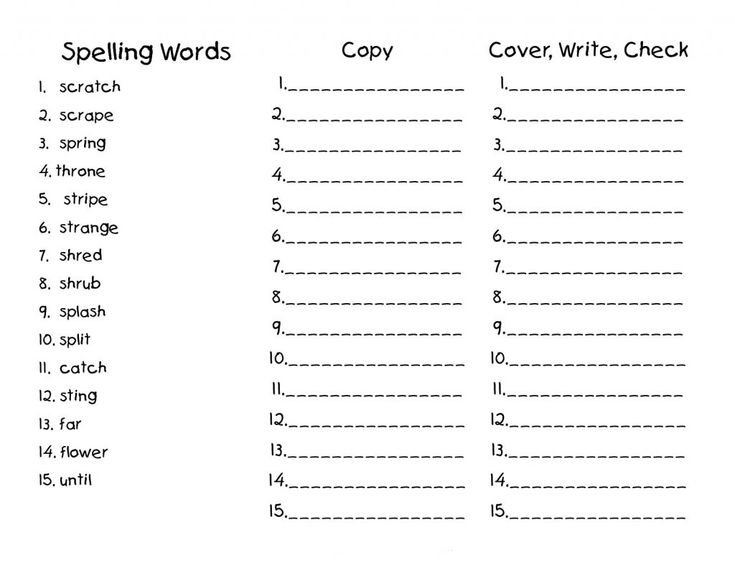 The word "essence" is also probably familiar to you, and the "e" at the beginning is perfectly heard. Only now the doubled “s” will have to be remembered, there is no way to check it.
The word "essence" is also probably familiar to you, and the "e" at the beginning is perfectly heard. Only now the doubled “s” will have to be remembered, there is no way to check it.
11. Periphery
Wrong: periphery.
The Russian prefix re- asks to appear in this word, but in fact -periphery- is the root. The history of its occurrence will help us not to make a mistake. Occurs "Dictionary of foreign words of the Russian language" - Periphery is a word from the Greek periphereia - a circle, where per i means "around".
12. History
Wrong: history.
There is a simple rule in Russian. If the prefix ends with a consonant, and the word begins with "i", then "s" is placed between them. An example in which this is clearly heard is "under y skat”, but “by and skat”.
13. Manager
Wrong: manager.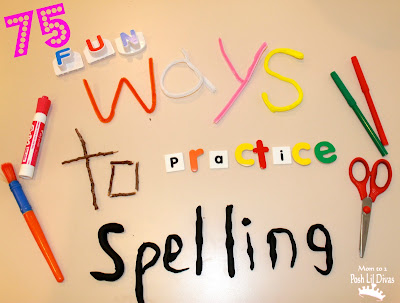
And again, the insidious letter "u" is lost during pronunciation. But we find it in the same easy way as above: "I will start and - that means I will start and sch."
14. Cholesterol
Wrong: cholesterol.
As with most words that are not native to our language, there are difficulties with it. Cholesterol "Dictionary of Foreign Words of the Russian Language" - Cholesterol is a special fatty substance found in bile. The origin of the word is Greek, and chol e just means "bile". In Russian, -hole- is one of the roots.
15. Incident
Wrong: incident.
This Russified foreign word is entirely the root. It is vocabulary and must be memorized. But etymology comes to our rescue again. The word happened "Big Encyclopedic Dictionary" - Incident from the Latin inc i dentis - happening. In both cases, we write "and".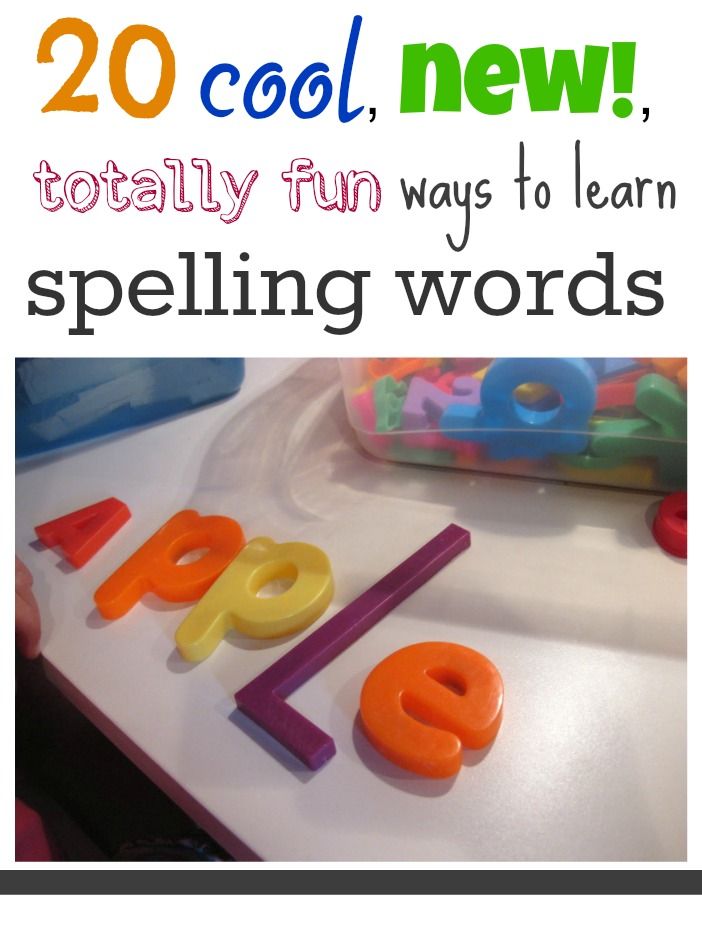
16. Ingredient
Wrong: ingredient, ingredient.
A complex borrowed dictionary word, which is also a whole root. With an "e" at the beginning, errors are rare, but they do occur. The main difficulty lies in the middle. To write correctly, we turn again to the Latin language. Ingredi in translation means "Dictionary of foreign words of the Russian language" - Ingredient "to enter". Therefore, an ingredient is a component of something, that is, a part of it.
17. Cacophony
Wrong: cocophony.
You have experienced this phenomenon many times when a neighbor's child was learning to play the piano or someone was doing renovations nearby. But not many people know how to write a word correctly. To remember why “a” is written, the Greek language will help us. It includes "Dictionary of Foreign Words of the Russian Language" - Cacophony of the word kakos, translated - bad, bad. In principle, it is true - the pleasant sounds of kakos will not be called.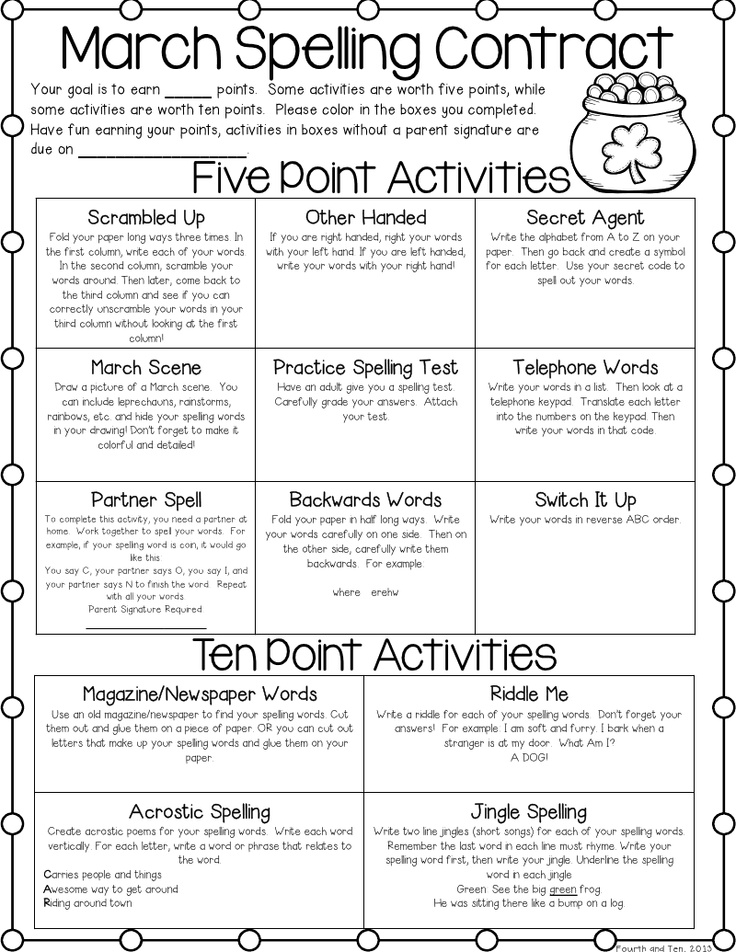
18. Canape
Wrong: canape.
This French word - canapé - means "Encyclopedic Dictionary" - Canapé is not only a small sandwich, but also a wide chair or sofa. How furniture became small sandwiches - history is silent. But it is known that a mistake is often made in the word.
19. Excessive
Wrong: oversized.
The extra letter "e" suggests itself, because we are used to seeing the word "through" as a preposition. It is more common, and the meaning is the same. But in this case through - is a prefix. It existed "Old Slavonic language", Nikolenkova N.V. still in the Old Slavonic language and looked like "through". Since then, the word "excessive" has been spelled that way, and this must be remembered.
20. Extreme
Wrong: extreme.
Many are misled by the word "extreme", which uses "and". Remember how to spell a tricky adjective, ice cream will help us.